- Home
- Kay Hooper
Whisper of Evil Page 4
Whisper of Evil Read online
Page 4
A figure wearing a dark rain slicker moved along a path diverging from the one she stood upon. She thought it was a man but couldn’t be sure; the slicker he wore had a hood that covered his head, and since he was moving away from her at an angle, his face wasn’t visible.
The body over his shoulder was very visible.
It was a woman, Nell was sure of that. Bare arms dangled, and long, wet hair streamed down. She seemed to be wrapped in a sheet or some other pale cloth that was clinging wetly to her skin, and she was limp. Very limp.
“Nell?”
Ignoring that summons, Nell tried to move forward, to follow him and find out where he was going. Was he going to bury a murder victim? Was he carrying an unconscious woman deeper into the woods to—do whatever it was he intended to do to her? Who was he? Who was the woman?
She tried to follow, but something grabbed at her, stopped her, and when she looked down it was to see thick vines twining about her wrists, holding her still. She managed to lift her arms slightly, fingers curling into fists with the effort, but the vines held on tightly.
“Nell!”
She looked quickly through the driving rain, trying to at least see which direction the shrouded figure took through the woods. But there was so much movement of the thick, wind-blown undergrowth, and so much distortion caused by the heavy rain and brilliant flashes of lightning, that she couldn’t see him now.
He was gone. . . .
“Nell!”
She blinked. The day had returned. The storm was gone. No rain, no thunder or lightning, no wind. And the vines gripping her wrists were two powerful hands.
She looked up to find Max frowning down at her, and she spared a moment to think wryly that the universe had a bizarre sense of humor. Either that, or it was out to torment her.
“I’m all right,” she said, dismayed by the unsteadiness of her voice. “You can let go of me now.”
“I’m not so sure.” If anything, his frown deepened. “What the hell just happened, Nell? You were about a million miles away.”
She was tempted to tell him she’d been farther away than miles could ever measure, but instead said, “Daydreaming, that’s all.” And immediately went on the defensive. “What are you doing out here?”
“I was out riding and heard something,” he said, not apologizing for riding on Gallagher land rather than his own considerable spread. He seemed to realize for the first time that he was holding her wrists and abruptly released them.
“Heard what?” Nell asked, more rattled than she wanted to admit to either of them. She absently massaged her wrists as she noted the presence of a big, muscled bay gelding standing patiently ground-tied a few yards away.
“You. You cried out.”
“What did I cry out?” she asked, reluctant but needing to know.
“No. You said it a couple more times before I got to you, then went silent. Daydreaming? Don’t give me that bullshit, Nell. You sounded like something or someone was hurting you, and you were white as a sheet. Still white, if it comes to that.”
Choosing her words carefully, Nell said, “I have very ... vivid ... daydreams. But, as you can see, no one is hurting me. No one is bothering me. I’m perfectly all right. I appreciate your concern, but I’m fine.”
“Are you? What about that?” He indicated the Band-Aid above her right eyebrow.
Nell shrugged. “I’m not ... reacquainted with the house yet, and a cabinet door caught me when I wasn’t looking. It’s just a scratch.”
Max wasn’t frowning now, but his gaze was disconcertingly steady. “It’s still happening, isn’t it?”
“I don’t know what you mean.”
“The blackouts. You blacked out, that’s how you hurt yourself.”
She almost denied it but finally shrugged again and made her voice wryly dismissive. “We all have something. I pass out from time to time, that’s all.”
“Did you ever find out what causes it?”
“Stress, the doctors say. I guess coming back here was more stressful than I realized.”
“Is that what happened here, just now?” But he shook his head before she could respond, and answered himself. “No, you weren’t unconscious. Your eyes were wide open. But your pupils were dilated, and I got the feeling ... you were somewhere else.”
“Obviously I wasn’t somewhere else. I was right here.” Nell wasn’t entirely sure why she was clinging stubbornly to the fiction that everything was fine— and normal—with her. Depending on how much he remembered, Max knew things about her that no one else in Silence knew. But as long as he didn’t admit to the knowledge, she wasn’t about to remind him.
He half nodded as though expecting the denial, but said, “Yeah, you were here. Why, Nell? With everything you have to do at the house, what brought you out here?”
“I wanted to go for a walk, that’s all.” Again, she went on the defensive. “What’s with you, Max? This is still Gallagher land, and I’m perfectly entitled to walk on it. I haven’t sold out to you yet.”
His mouth tightened. “In case you’ve forgotten what Shelby told you yesterday, people have been dying around here lately. It’s not especially safe for you to wander around out in the woods by yourself.”
“Men have been dying, according to you and Shelby. Not women.”
“So far. But there’s no reason to push your luck, Nell.”
“I can take care of myself.”
“Can you?” He laughed shortly. “You were oblivious when I got here. Anyone could have walked up and— done anything at all to you.”
“I’m fine, and I can take care of myself,” she insisted, and took a step back away from him to emphasize that independence. “Don’t let me keep you from your ride, Max.”
For a moment, it seemed he would argue with her, but then he muttered a curse under his breath and went to remount his horse. He gathered up the reins and turned the horse back toward his own property but paused to deliver a last, flat warning before riding away.
“Be careful, Nell. Whoever killed those men seems to want to get secrets out in the open. And we both know you have plenty of secrets to protect.”
She didn’t move or say anything in response, just watched him ride away until the forest swallowed him up.
Was his arrival here as casual as it appeared, or more deliberate? And what about the vision he had interrupted? Had she seen the postscript of a murder here in these woods, or something every bit as evil? Who was the man, the woman?
Nell stood where she was for several minutes, looking around her, searching for some sign that might answer her questions. But the forest was peaceful and unrevealing now, and the peculiar doorway in her mind refused to open.
Great. Just great. The universe was willing to give her a glimpse, but no real help.
As usual.
Sighing, Nell looked around once again and only then realized just where she was. Twelve years had changed everything, so perhaps that was why she hadn’t immediately recognized it.
The big oak tree didn’t look so very different; a dozen years in the life of an oak was hardly any time at all. There were vines twining about its base that hadn’t been there before, vines Nell had to pull aside in order to find the roughly carved heart and its two sets of initials.
He had caught her here on an autumn day long ago, carving her hopes into the tree with a rusty pocketknife, and after that there hadn’t been much use in pretending.
Nell watched her fingers trace the NG and MT, then sighed and allowed the vines to hide it once again. And it was only then that she recognized the vines.
Poison ivy.
She had to laugh, albeit ruefully. The universe, she decided, was definitely out to torment her. She turned and made her way back through the woods toward the house, hoping to wash the plant oils off her hands before her lack of caution resulted in a rash.
A bad one.
CHAPTER THREE
Ethan Cole looked up from his desk and only just managed not to s
cowl as the mayor of Silence walked into his office. Like him, she disliked intercoms; unlike him, she also disliked phones and so tended to arrive with absolutely no warning.
He could have used a little warning.
“Ethan, is there any more information about George Caldwell’s death?” she asked without preamble.
Ethan made a token attempt to rise, mostly wasted since she immediately sank into one of his visitor’s chairs, then he sat back down and made a show of pulling a folder off a stack in his in-box and frowning over the contents.
“Well, no, Casey, I don’t see anything here you don’t already know. Which I could have told you and saved you the trip if you’d called me.”
Mayor Lattimore shrugged, her dark blue eyes fixed on his face. “I was coming over this way and figured I’d stop in. Ethan, I’ve had a dozen calls today—and not a single answer for any of the questions I’ve been asked.”
“What questions?”
“What you’d expect. What’s going on? Why can’t we figure out who killed George Caldwell and the others and stop him before he kills somebody else?”
Ethan stiffened. “Even assuming all four of these men were killed, who’s to say they were killed by the same person?”
“Jesus, Ethan, I hope you’re not suggesting we’ve got four separate murderers running around Silence.”
“It might be the lesser of two possible evils,” he said with a sigh. “All we need is for the phrase serial killer to start making the rounds to damned sure put this town in a panic.”
“Maybe we’re already in a panic,” the mayor suggested. “People are scared, you can hear it in their voices.”
“I know that.”
“So what do I tell them?”
Irritably, Ethan said, “Tell them to lock their doors at night, be careful, and mind their own business.”
“And what do I say when they ask me why we elected officials aren’t doing the job we were voted in to do?”
“Say we’re damned well doing our jobs. Look, Casey, I don’t know what else to tell you. My people are busting their asses trying to get this thing figured out. I haven’t taken a day off since January, and my overtime budget went out the window months ago. We’re working the investigations—and that’s all we can do. If anybody else has a practical suggestion, I’d love to hear it.”
“You still don’t have a suspect for even one of the murders?”
He hesitated, then said, “I’m looking at Max Tanner for the Ferrier and Patterson deaths.”
She lifted an eyebrow at him. “Last I heard, you weren’t even admitting Luke Ferrier’s drowning was anything but suicide or an accident.”
“A few things have come to light that make murder at least as likely as an accident.”
“I see. And what’s the connection to Max Tanner?”
Ethan was not required to explain either himself or his investigations to the mayor—not directly, at any rate—but he’d learned that when Casey Lattimore asked questions she expected answers. And she could be a royal pain in the ass until she got them.
So, reluctantly, he answered. “It seems Ferrier borrowed money from Max a few weeks before he died.”
“You got that from Max?”
“No. From someone who overheard Max telling Ferrier he wanted the loan repaid pronto.”
The mayor frowned. “Correct me if I’m wrong, but wouldn’t killing Ferrier be a stupid way to get a loan repaid?”
“Max has a temper, everybody knows that. He could have struck first and regretted it later.”
“Struck by pushing Ferrier’s car into a bayou? Wouldn’t that theory make more sense if somebody’d beat the hell out of Ferrier rather than trying to drown him? I mean, if you suspect Max of the killing?”
Ethan hated logical women. “I said I was looking at Max, not that I considered him a solid suspect.”
Without commenting on his disgruntled tone, she merely said, “And the Patterson death? What makes you suspect Max of being involved in that one?”
“We know the killer stood outside that bathroom window for a while before he dropped the electrical wire in, and we found a footprint. Style and size match up with the boots Max usually wears.”
“I assume you checked Max’s boots?”
“Yeah.”
“And?”
“And nothing. We can’t prove just from the print that it was him standing outside that window.”
“What else have you got?”
“Not much,” Ethan admitted.
Rather than question him further on that point, she merely sighed and said, “I gather you’re still against calling in outside help?”
His jaw tightened. “I am. These are grudge killings, and that means all the answers are right here in Silence. Whether there’s one killer or more than one, no outsider is going to be better or quicker than we are in putting the pieces together.”
“It’s been eight months, Ethan.”
The sheriff drew a breath and said carefully, “And the first forty-eight hours after a murder are critical. Yes, Casey, I know that. I also know that you feel qualified to comment on the investigation because you took that FBI course last year.”
“That isn’t—”
“I’m not saying it wasn’t a smart thing for you to do. A mayor should feel qualified to oversee most aspects of town management. But law enforcement is a specialty, and one course in Criminal Investigation Techniques 101 hardly equates to fifteen years of experience on the job.”
Perfectly aware that he was putting her on the defensive deliberately, Casey Lattimore nevertheless heard herself say, “I never claimed to be an expert, Ethan. And I’m certainly not trying to tell you how to do your job.”
“I appreciate that, Casey.”
She got to her feet, adding smoothly, “But judging by the phone calls I’ve been getting, the citizens of Silence want action, and they want it soon. Even so, we can’t afford any mistakes. That means you’d better be damned sure of your evidence before you shine a spotlight of suspicion on anybody.”
Even Max Tanner. She didn’t add that last aloud. She didn’t have to.
“Don’t worry,” the sheriff said. “I know my job.”
Instead of agreeing that he did, she merely said, “Keep me advised, will you? The town council is under as much pressure as we are, Ethan; it won’t look good to the voters if we all appear to be sitting on our hands.”
“Meaning they might take action?”
The mayor kept her tone mild. “Elected officials can’t afford to do nothing for long, you know that.” She didn’t wait for a response but turned toward the door, adding over her shoulder, “We’ll be talking, I’m sure.”
“Yeah,” the sheriff agreed. “I’m sure we will.”
THURSDAY, MARCH 23
What Nell discovered when she wandered around downtown Silence on Thursday morning was that most people had forgotten old scandals and questions. Most people. There were, in fact, quite a few newcomers to the area, especially since the recently completed highway had brought heavier traffic much closer to the city limits the previous year.
She counted a dozen obviously new businesses just in the downtown area, most of them the sort she would have expected, like clothing boutiques and collectibles-type stores. All were enjoying brisk foot traffic. There was also, she noticed, an unusually strong police presence in the town. She counted three different cruisers patrolling, as well as a couple of deputies on foot roaming the sidewalks.
Nell had several reasons for being in town. She had to see the family attorney to sign various papers; she paid a visit to an insurance adjuster for referrals to appraisers she could employ to look over some of the furniture and artwork at the house; and she spent some time at both the library and the courthouse.
It was after lunchtime when Nell emerged from the courthouse, and after a glance at her watch, she picked a downtown café and found herself a rather isolated booth in the rear. The waitress was blessedly incurious, th
e food good, and Nell enjoyed a peaceful half hour or so alone with her thoughts.
“Wade Keever says you’ve turned down my offer.”
She looked up to find Max scowling at her. She sat back and sipped her coffee to give herself a moment, then said, “He’s talking out of turn. I said I’d consider it, that’s all. I just haven’t made up my mind about it.”
“It’s a fair offer. You won’t get a better offer, Nell, not for that land.”
“I’m aware of that.”
“Then why the hesitation?”
She glanced around, grateful that most of the café was deserted and no one appeared to be paying attention to them. Still, she kept her voice low. “I told you. I’m not so sure I want to sell out.”
Max slid into the booth, across from her. “Why not?”
Nell didn’t waste time or energy commenting on his manners. “Because I’m not sure. Look, Max, I know you want that land and I know you want me gone. But maybe I’m not quite so eager to cut my last ties to this place. You don’t have to worry, though—I won’t sell the land to anybody else. It adjoins your property, and you’ll have first chance at it. If I decide to sell.”
Instead of protesting or questioning that, Max abruptly changed the subject. “Any more blackouts?”
Nell shook her head.
“What about that . . . episode in the woods? Has that happened again?”
“Nothing happened, Max.”
“Don’t give me that daydreaming bullshit again, Nell. Do you think I don’t remember what used to happen to you? The visions?”
With an effort, she summoned a wry smile. “I was sort of hoping you had forgotten.”
“It’s still happening, isn’t it? Just like the blackouts.”
“Did you think it would go away? That I’d outgrow it eventually?” Nell had to laugh, however unamused the sound. “Curses are with you for life, Max, didn’t you know that?”
“You used to call it that. The Gallagher curse.”
“Most families seem to have something. Cousins that can’t get along. Squabbles about property. Medical problems. A mad wife locked away in the attic. We have a curse.”

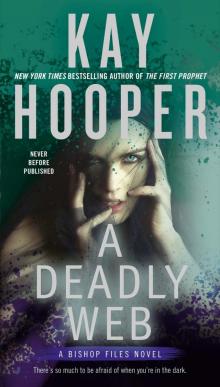 A Deadly Web
A Deadly Web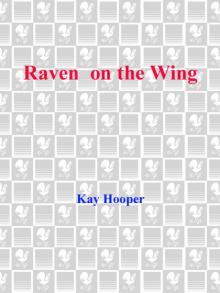 Raven on the Wing
Raven on the Wing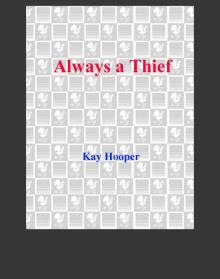 Always a Thief
Always a Thief Star-Crossed Lovers
Star-Crossed Lovers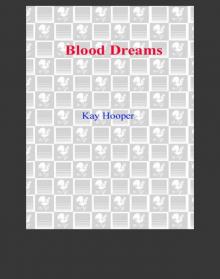 Blood Dreams
Blood Dreams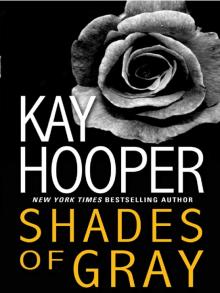 Shades of Gray
Shades of Gray Rebel Waltz
Rebel Waltz Chill of Fear
Chill of Fear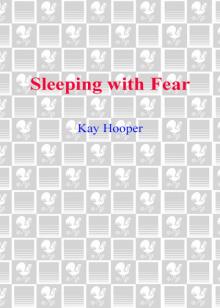 Sleeping With Fear
Sleeping With Fear After Caroline
After Caroline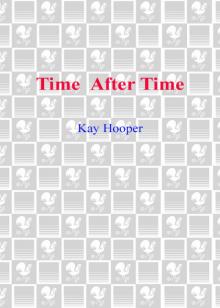 Time After Time
Time After Time Haunting Rachel
Haunting Rachel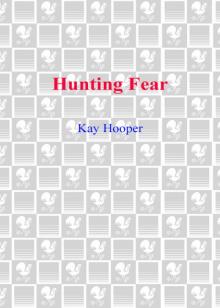 Hunting Fear
Hunting Fear Out of the Shadows
Out of the Shadows Whisper of Evil
Whisper of Evil Blood Sins
Blood Sins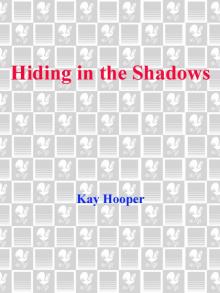 Hiding in the Shadows
Hiding in the Shadows C.J.'s Fate C.J.'s Fate C.J.'s Fate
C.J.'s Fate C.J.'s Fate C.J.'s Fate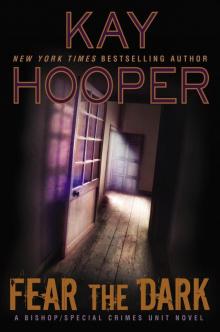 Fear the Dark
Fear the Dark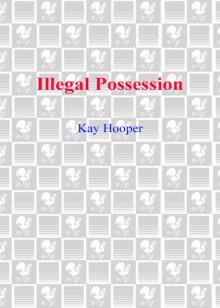 Illegal Possession
Illegal Possession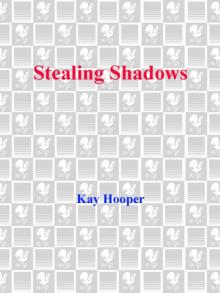 Stealing Shadows
Stealing Shadows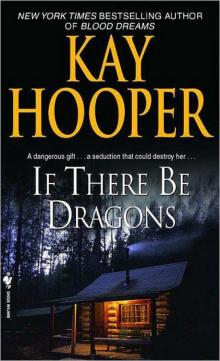 If There Be Dragons
If There Be Dragons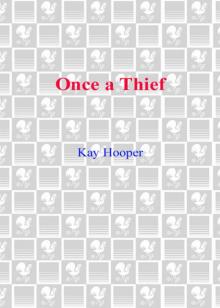 Once a Thief
Once a Thief In Serena's Web
In Serena's Web On Wings of Magic on Wings of Magic
On Wings of Magic on Wings of Magic Hostage
Hostage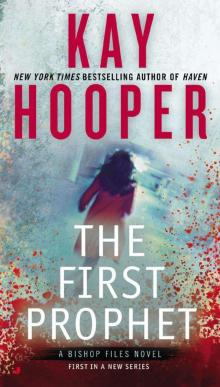 The First Prophet
The First Prophet Through the Looking Glass
Through the Looking Glass Golden Flames
Golden Flames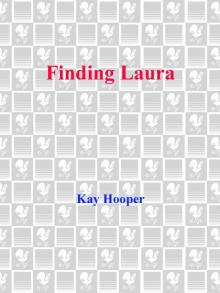 Finding Laura
Finding Laura Haven
Haven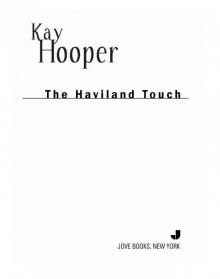 The Haviland Touch
The Haviland Touch The Lady and the Lion
The Lady and the Lion Haunted
Haunted Velvet Ligntning
Velvet Ligntning Blood Ties
Blood Ties Adelaide, the Enchantress
Adelaide, the Enchantress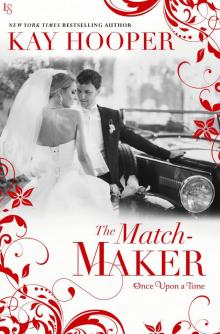 The Matchmaker
The Matchmaker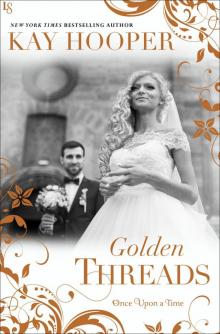 Golden Threads
Golden Threads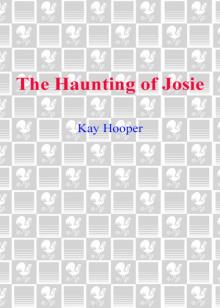 The Haunting of Josie
The Haunting of Josie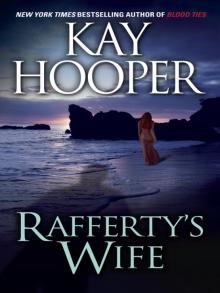 Rafferty's Wife
Rafferty's Wife Amanda
Amanda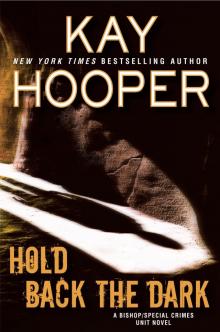 Hold Back the Dark
Hold Back the Dark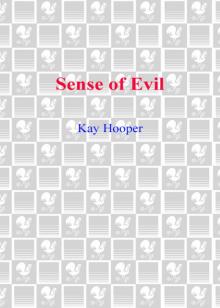 Sense of Evil
Sense of Evil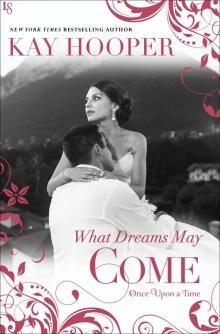 What Dreams May Come
What Dreams May Come Larger Than Life
Larger Than Life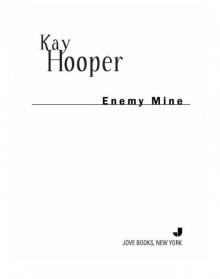 Enemy Mine
Enemy Mine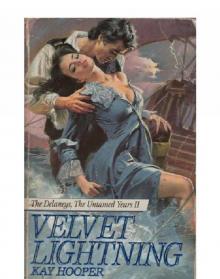 Velvet Lightning
Velvet Lightning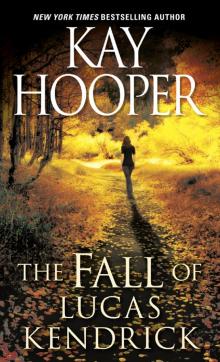 The Fall of Lucas Kendrick
The Fall of Lucas Kendrick Aces High
Aces High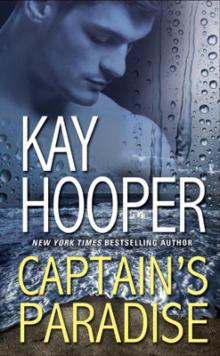 Captain's Paradise: A Novel
Captain's Paradise: A Novel The Wizard of Seattle
The Wizard of Seattle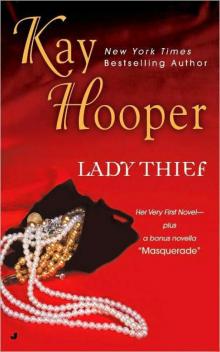 Lady Thief
Lady Thief Summer of the Unicorn
Summer of the Unicorn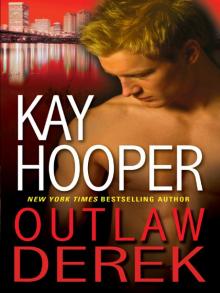 Outlaw Derek
Outlaw Derek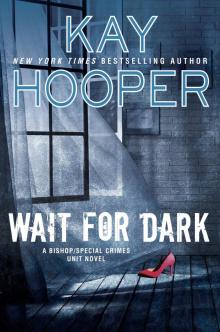 Wait for Dark
Wait for Dark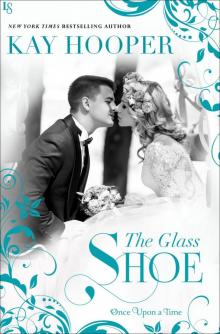 The Glass Shoe
The Glass Shoe It Takes a Thief
It Takes a Thief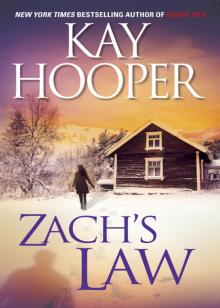 Zach's Law
Zach's Law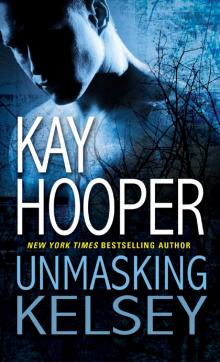 Unmasking Kelsey
Unmasking Kelsey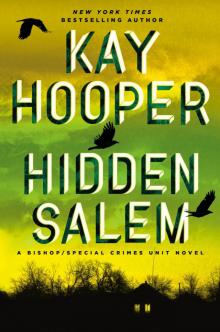 Hidden Salem
Hidden Salem